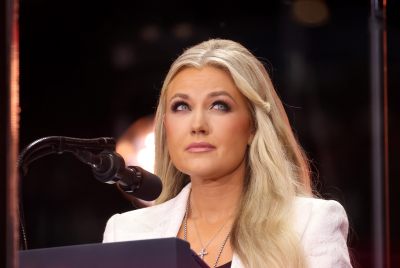Charlie Kirk Video on YouTube, Social Media Spreads in the UK, Other Countries — Where's the Censorship?
Platforms applied age gates, warnings and limited visibility; no UK legal ban was issued

A video showing the assassination of American conservative commentator Charlie Kirk has drawn widespread attention in the United Kingdom, prompting debate over how social media platforms handle graphic political content from overseas. The footage, which was recorded during a public event, has been circulated extensively on YouTube, X (formerly Twitter), Telegram and other platforms.
While some commentators have accused platforms of restricting access, available evidence suggests that social media companies are applying existing rules for sensitive or graphic content rather than imposing blanket bans. The situation highlights the complexities of moderating international political material in the UK, where platforms are now operating under a stricter legal framework.
Video Gains International Attention
Footage of Kirk's assassination, recorded during a public event, has circulated widely across platforms and is often shared alongside earlier clips of his speeches and interviews. YouTube removed certain graphic versions and added age restrictions to others, while Meta applied warning labels to selected posts, according to AP News. Reddit and Discord moderated discussions without full removals. On Telegram, where oversight is minimal, the video spread largely unimpeded, with some channels translating Kirk's remarks for European audiences.
This circulation illustrates how American political content can rapidly reach UK audiences, exposing differences in local regulation and platform enforcement. Analysts say it also demonstrates the challenges facing regulators when material originates outside national borders but still has wide impact domestically.
Moderation, Not Censorship
Despite online claims, there is no evidence of a legal ban in the UK. Platforms are required to follow the Online Safety Act, which came fully into force in July 2025, holding them responsible for illegal or harmful content. Ofcom has not issued any order to remove Kirk's video. While concerns exist that the material could fall under rules against content inciting hatred or misinformation, no formal determination has been made.
Age restrictions, warning labels and reduced visibility are being applied according to platform policies rather than government directives. Observers note that these measures can give the impression of censorship, even when they are part of standard content moderation.
Challenges of Online Regulation
Changes to moderation policies in 2025 have contributed to uncertainty. Meta replaced its third-party fact-checking model with Community Notes, reducing restrictions on political and health content, according to BBC. TikTok restructured its UK trust and safety operations, increasing reliance on automated tools and delaying some moderation decisions, the Financial Times reported. These shifts, combined with the UK's Online Safety Act requirements, have made it less clear when content visibility is restricted versus removed entirely.
Charlie Kirk's crime was that he debated contemporary issues with people who disagreed. pic.twitter.com/xG80p713X6
— Carl Benjamin 🏴 (@Sargon_of_Akkad) September 10, 2025
So about this UK online safety act that was meant to protect us from seeing gore.
— Setsuna 🎗| Bodypaint No1 fan (@Deen186) September 11, 2025
How many people saw Charlie Kirk get shot!
Hey Carl do you think the UK Government will use their online Safety Act to prosecute those celebrating Charlie Kirk’s death? pic.twitter.com/BcWUulxPYA
— Vic Singh - #BrownMunday 🏴🇬🇧⚒️☬ (@vicsinghb) September 11, 2025
Implications for the UK
The debate around Kirk's video underscores the tensions between global platforms and national regulation. Conservative voices in the US argue that Silicon Valley companies unfairly target them, and Kirk's remarks reaching UK audiences amplify the discussion. While moderation is being applied, the perception of censorship persists, reflecting broader concerns about transparency and oversight.
For UK users and regulators, the case highlights the need for clear communication on how content is managed across borders. It also demonstrates the challenge of balancing free expression with public safety under the Online Safety Act. The controversy is likely to continue as social media companies adapt to new legal obligations while handling politically sensitive material from abroad.
© Copyright IBTimes 2025. All rights reserved.




















